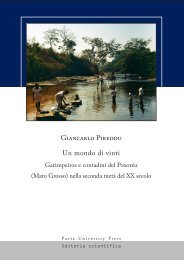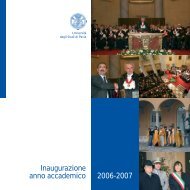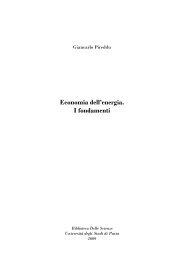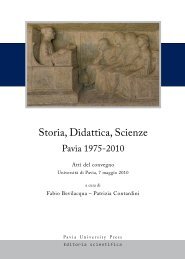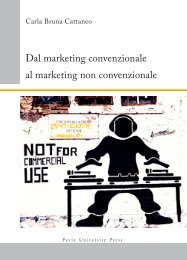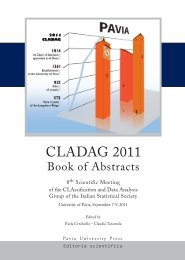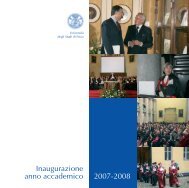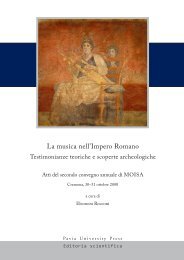Musica che affronta il silenzio - Scritti su Toru Takemitsu - Pavia ...
Musica che affronta il silenzio - Scritti su Toru Takemitsu - Pavia ...
Musica che affronta il silenzio - Scritti su Toru Takemitsu - Pavia ...
You also want an ePaper? Increase the reach of your titles
YUMPU automatically turns print PDFs into web optimized ePapers that Google loves.
Music Facing Up to S<strong>il</strong>ence. Writings on Tru Takemit<strong>su</strong><br />
Even if he had a lot of work overseas, he made Japan his base, and went to and fro<br />
between Japan and foreign countries. Such was the stance that Takemit<strong>su</strong> maintained. How<br />
did average members of Japanese society view Takemit<strong>su</strong>, who frequently went abroad and<br />
yet lived in the land of his birth? I would like to examine two areas in which Takemit<strong>su</strong><br />
exerted a strong influence on Japanese culture, besides composition. One was his involvement<br />
in publication. The other was his activity as organiser of music festivals in Japan.<br />
First of all, I w<strong>il</strong>l talk about the former. He was an essayist and expert interviewer, and<br />
at the same time he was involved as a member of the editorial staff or <strong>su</strong>pervisor of various<br />
magazines, offering encouragement from behind the scenes. Eleven volumes of<br />
Takemit<strong>su</strong>’s essays, and eight collections of conversations, have been published in Japan.<br />
There is a book called Confronting S<strong>il</strong>ence which contains a selection of Takemit<strong>su</strong>’s<br />
writings (1995), but this is only a tiny fraction of his complete essays, translated into<br />
English by Glenn Glasow and Yoshiko Kakudo.<br />
The first occasion an essay of his appeared in a magazine was in 1951, when he was<br />
twenty-one. After that, he wrote many essays for newspapers, magazines and exhibition<br />
catalogues unt<strong>il</strong> his death. It was 1964 when he published his first book, at his own expense.<br />
Kenzaburo e thought it was a wonderful book which should be published by a<br />
major publisher, and he asked one of the editors who had taken charge of his own complete<br />
edition to consider it. As a re<strong>su</strong>lt it was published in 1971 by the long-established publishing<br />
house Shinchsha, who had an extensive catalogue ranging from classics to<br />
contemporary works. The English title is Confronting S<strong>il</strong>ence, deriving from the essay in<br />
which he says that s<strong>il</strong>ence is as important as sounds.<br />
You may already know e as the novelist who won the Nobel Prize for literature in<br />
1994, but at that time he was a close friend of Takemit<strong>su</strong> and lived nearby – according to<br />
e, it was a distance of only 200 paces – and they often talked together. These two people<br />
influenced each other creatively: Takemit<strong>su</strong> composed music after reading a novel by e,<br />
wh<strong>il</strong>e on the other hand, after listening to Takemit<strong>su</strong>’s music, e wrote a short story. Rain<br />
Tree for percussion, for example, was composed in <strong>su</strong>ch fashion.<br />
In his essays Takemit<strong>su</strong> wrote about <strong>su</strong>bjects ranging from artistic matters <strong>su</strong>ch as music,<br />
literature, painting, f<strong>il</strong>m and so on, to his travel experiences or the birth of his daughter<br />
– all the things that he felt in his da<strong>il</strong>y life. But he never wrote about the technique or theory<br />
of a particular composition. He wrote about the entire culture with a wide-ranging point of<br />
view and an acute sensib<strong>il</strong>ity. Takemit<strong>su</strong>’s thinking extends to the cultural differences between<br />
Japan and the countries he visited, the relationship between culture and natural<br />
environment, the problem of modernity, and so on. He was therefore accepted by a broad<br />
readership, not one limited to music fans. Even if the readers who were interested in f<strong>il</strong>m,<br />
137



